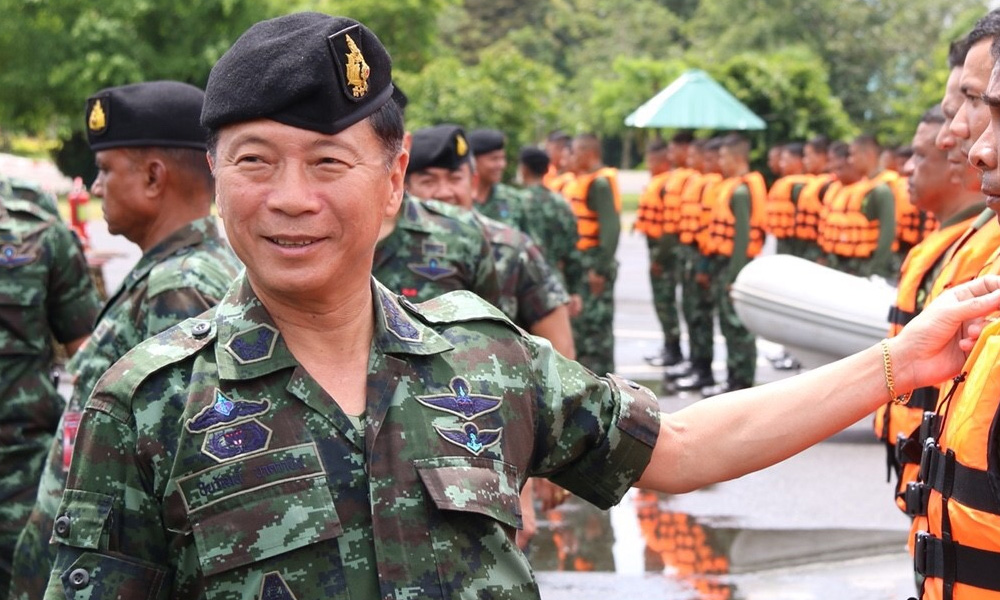For years authorities have been struggling in its efforts to stamp out the flow of cheaper smuggled oil from neighbouring Malaysia which has generated a lucrative but illegal multi-billion Baht black economy in southern Thailand.
Much of the reasons for the government's failure in curbing the illicit business was due to the involvement of powerful local politicians and "influential people", who have long been accused of being behind the profitable racket.
“This illegal business could not operate without these people (local politicians and influential people). The authorities could not arrest, as someone will always take the blame if we try to arrest them,” said Piyawat Nakwanich to Bernama recently.
The general, who is the Fourth Army Region commander, did not identify the local politicians and influential people who were accused of running the cartel behind the illegal oil trade.
Huge difference in diesel and petrol price between Malaysia and Thailand have made Malaysian oil a longtime favourite target by Thai smugglers and their powerful backers, who wanted to score huge profit by trading it illegally in underground markets in southern Thailand.
In Malaysia, a trip to your local petrol station for a litre of diesel will cost you RM2.18 while for RON 95 petrol (RM2.20) and the premium RON 98 petrol (RM2.58).
Meanwhile, a litre of diesel, gasohol 95 and gasohol 91 commonly used by pickup trucks and cars in Thailand will cost you Baht 29.19 (about RM3.64), Baht 29.65 (about RM3.70) and Baht 29.38 (about RM3.67) respectively.
Putrajaya boosts border checks
The continued flow of cheaper Malaysian oil to southern Thailand via smuggling routes along the border was also a major concern for Putrajaya, which had devised several ways to immediately addressed the matter including boosting checks at the border.
Piyawat (photo), who is in charge of overall security in southern Thailand, hoped efforts by the authorities to combat trade of smuggled oil in the southern provinces would be successful with officials shying away from any attempt to silence them through bribery.

“As long as the authorities are not corrupt, we can defeat and damage their (illegal) business,” he said, adding that the smugglers used various routes to smuggle the oil into southern Thailand.
He noted that the smuggled oil did not only come via modified pickup trucks crossing the Thai-Malaysian border, but also by oil-laden fishing trawlers which got the “supplies” from ships parked in international waters.
Nevertheless, efforts to tighten surveillance and enforcement at the border had bore fruits, he said.
According to him, illicit trading of smuggled oil needed to stop as it had brought negative impact to the local economy and “frightened” genuine businessmen from setting up licensed petrol stations in southern Thailand.
The prospect of competing head-on with illegal oil traders who offer similar quality petrol or diesel but with a much lower price, would not be an enticing business proposition for businessmen wanting to set up licensed petrol station in the south.
Piyawat said, cracking down on illicit oil business would also improve profitability among petrol station operators in the south, which would mean better tax revenue for the government.
The authorities recently, he said, seized about 100,000 litres of smuggled oil in joint operations with other government agencies.
Last month four soldiers were caught and later stripped of their uniforms after they were found among 18 people arrested with almost 50,000 litres of smuggled oil in southern Thailand.
Deputy Prime Minister Prawit Wongsuwan, who is also the defence minister, has ordered a full investigation on the matter as authorities were likely to arrest more suspects related with the seizure of smuggled oil.
- Bernama

